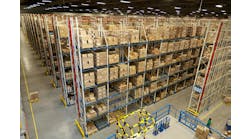After what nearly became a bidding war for P&O Ports, DP World paid what many considered a premium price of $6.8 billion for the global assets that included terminal operations at six U.S. ports and stevedoring in 16 East Coast and Gulf Coast ports. It was the latter operations that actually led to the Dubai-based company’s problems.
After passing review by the U.S. Treasury Department’s Committee on Foreign Investment, which included representation from the Department of Defense and Department of Homeland Security, the deal suddenly came under review allegedly because of security concerns over allowing a company controlled by the Dubai government to manage port terminal operations in the United States. Credit for raising the alarm, however, goes to Eller & Co., which expressed financial, not security concerns.
Miami-based Eller said it was a creditor of P&O and, as a result of the DP World deal, would suffer substantial financial damage if the transaction were to proceed. In addition to alleging potential financial harm to Eller, its attorney claimed there were 11 procedural irregularities in the way the P&O deal was handled. Bringing political pressure to bear, Representative Peter King (R-New York) was among the first to voice opposition to the deal, citing security concerns. (King is a member of the House Committee on Homeland Security.)
Industry response at the time included comments by the International Cargo Security Council (ICSC) noting the deal affected only the management of terminals and that seaport security was separate from terminal management and was, in fact, the responsibility of the ports, the U.S. Customs and Border Protection Service and U.S. Coast Guard—both agencies of the U.S. Department of Homeland Security.
Horizon Lines’ President and CEO, Charles Raymond, said at the time, “DP World is not buying ports. They are assuming operations of certain berths and accompanying acreage where longshore and warehousing operations are performed. Provided Dubai Ports World complies with the security protocols established for all such operators, I see no unusual risk in their case.”
What’s DP World’s stand on security? Logistics Today reported on September 20th, DP World was the first global company in the logistics industry to gain certification to an international standard for its security management systems and operations. Its corporate headquarters in Dubai and the Djibouti Container Terminal were certified by Lloyds Register Quality Assurance, an independent international certification body. According to DP World, ISO/PAS 28000:2005 Security Management Systems for Supply Chain will be applied to all DP World internal and external security initiatives and activities.
ISO/PAS 28000:2005 was developed and introduced in response to demands from the transportation industry for a common security management standard, said DP World. The ISO standard is compatible and complementary to other governmental and International Custom Agency security initiatives, including World Customs Organization Supply Chain Security, EU Customs Security Program-Authorized Economic Operator and U.S. Customs and Border Protection initiative Customs-Trade Partnership Against Terrorism (C-TPAT).


